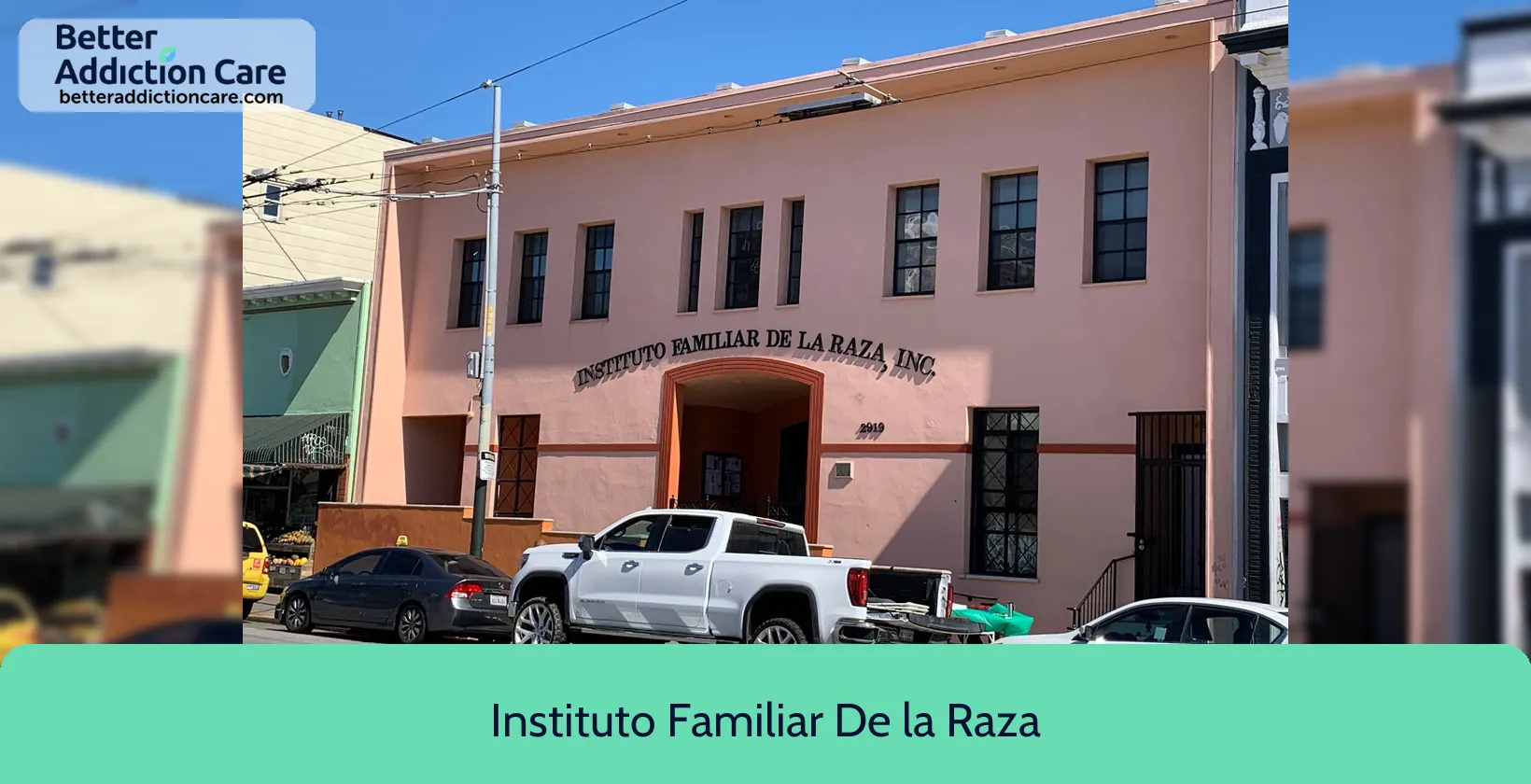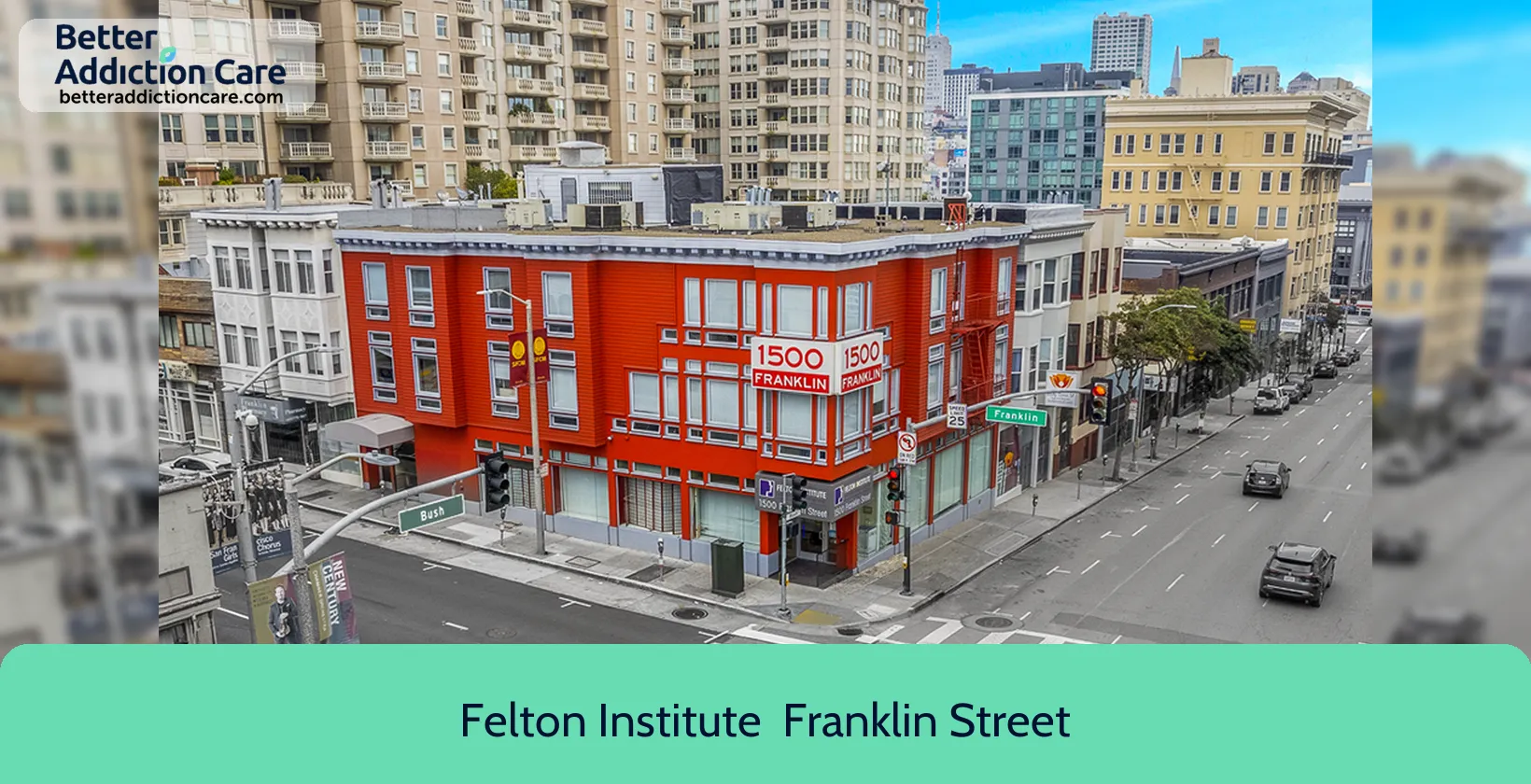Felton Institute - Geriatric Outpatient Mental Health Services

Overview
Felton Institute - Geriatric Outpatient Mental Health Services is a mental health treatment center for people seeking treatment near San Francisco County. As part of their treatment modalities for recovery, Felton Institute - Geriatric Outpatient Mental Health Services provides group counseling, individual psychotherapy, and family counseling during treatment. Felton Institute - Geriatric Outpatient Mental Health Services is located in San Francisco, California, accepting cash or self-payment for treatment.
Felton Institute - Geriatric Outpatient Mental Health Services at a Glance
Payment Options
- Cash or self-payment
- Medicare
- Private health insurance
- State-financed health insurance plan other than Medicaid
- Sliding fee scale (fee is based on income and other factors)
Assessments
- Comprehensive mental health assessment
- Comprehensive substance use assessment
Age Groups
- Adults
- Seniors
- Young adults
Operation
- Private non-profit organization
Highlights About Felton Institute - Geriatric Outpatient Mental Health Services
6.82/10
With an overall rating of 6.82/10, this facility has following balanced range of services. Alcohol Rehabilitation: 8.00/10, Drug Rehab and Detox: 6.00/10, Insurance and Payments: 6.53/10, Treatment Options: 6.73/10.-
Alcohol Rehabilitation 8.00
-
Treatment Options 6.73
-
Insurance and Payments 6.53
-
Drug Rehab and Detox 6.00
Treatment At Felton Institute - Geriatric Outpatient Mental Health Services
Treatment Conditions
- Mental health treatment
- Substance use treatment
- Co-occurring Disorders
Care Levels
- Intensive outpatient treatment
- Aftercare
- Outpatient
Treatment Modalities
- Group counseling
- Individual psychotherapy
- Family counseling
- Marital/couples counseling
- Cognitive Behavioral Therapy
Ancillary Services
Languages
- Sign language services for the deaf and hard of hearing
Special Programs
- Clients who have experienced trauma
- Persons 18 and older with serious mental illness (SMI)

Additional Locations
Get Help Now
Common Questions About Felton Institute - Geriatric Outpatient Mental Health Services
Contact Information
Other Facilities in San Francisco

6.50

6.77

6.93

6.68

6.70

6.62

6.96

6.68
DISCLAIMER: The facility name, logo and brand are the property and registered trademarks of Instituto Familiar De la Raza, and are being used for identification and informational purposes only. Use of these names, logos and brands shall not imply endorsement. BetterAddictionCare.com is not affiliated with or sponsored by Instituto Familiar De la Raza.

